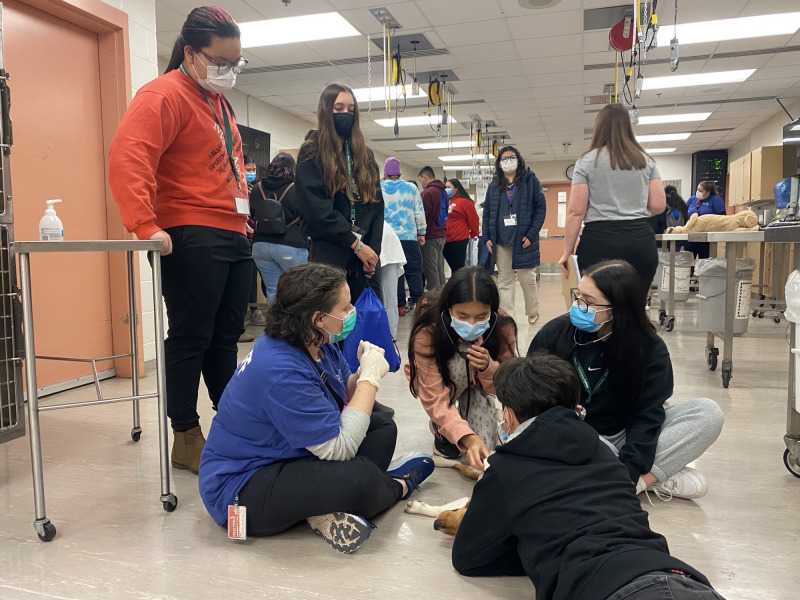Atlantic Veterinary College hosts first NSERC Day in Veterinary Medicine

The Atlantic Veterinary College (AVC) at the University of Prince Edward Island (UPEI), with support from the Natural Sciences and Engineering Research Council of Canada (NSERC), hosted its first NSERC Day in Veterinary Medicine on Saturday, November 26.
NSERC Day in Veterinary Medicine was a free, day-long event that provided an opportunity for Indigenous youth in junior high and high school to learn what it is like to be a veterinarian. Modelled after AVC’s award-winning Dr. Tim Ogilvie AVC Vet Camps (AVC Vet Camps), participants worked alongside faculty, staff, and students during a number of hands-on activities, labs, and discussions.
“The day featured all of our highest-ranked sessions offered during our AVC Vet Camps,” says Dr. John VanLeeuwen, interim dean, AVC. “Based on their success, it was a natural fit that we would marry the two initiatives to create a fun, educational, and interactive day for all.”
NSERC Day in Veterinary Medicine had over 50 registrants from Nova Scotia, New Brunswick, and Prince Edward Island. Participants began the day with a welcome from Dr. VanLeeuwen, followed by a welcome and blessing from Elder Judy Clark, elder-in-residence, UPEI. Immediately after, participants were given a behind-the-scenes tour of AVC, and then participated in a small animal physical examination, a session on radiology, and an anatomy lab.
In the afternoon, participants performed an equine physical examination, gowned and gloved like a surgeon, learned about the importance of sterilization and proper handwashing, completed a fish dissection, and finished the day with an “ask the experts” panel featuring current AVC doctor of veterinary medicine students.
“These youth are the future generation of veterinary medicine and we were incredibly pleased with the response and support from Indigenous communities for the program,” says Dr. VanLeeuwen. “We remain committed to working with these communities so, together, we can create meaningful opportunities for Indigenous youth to experience and learn more about veterinary medicine.”